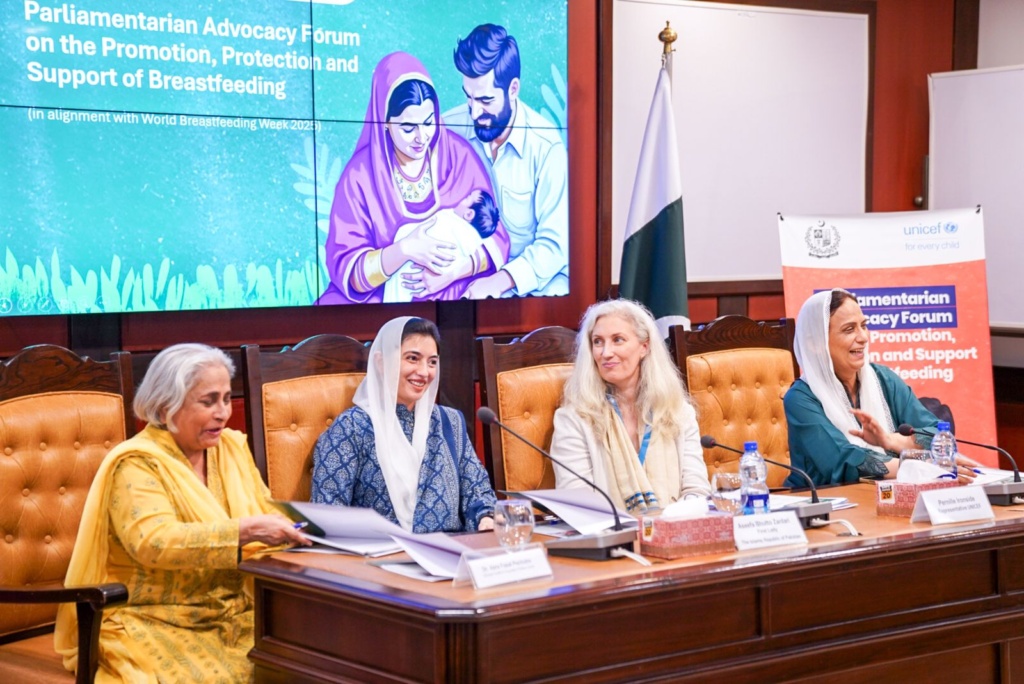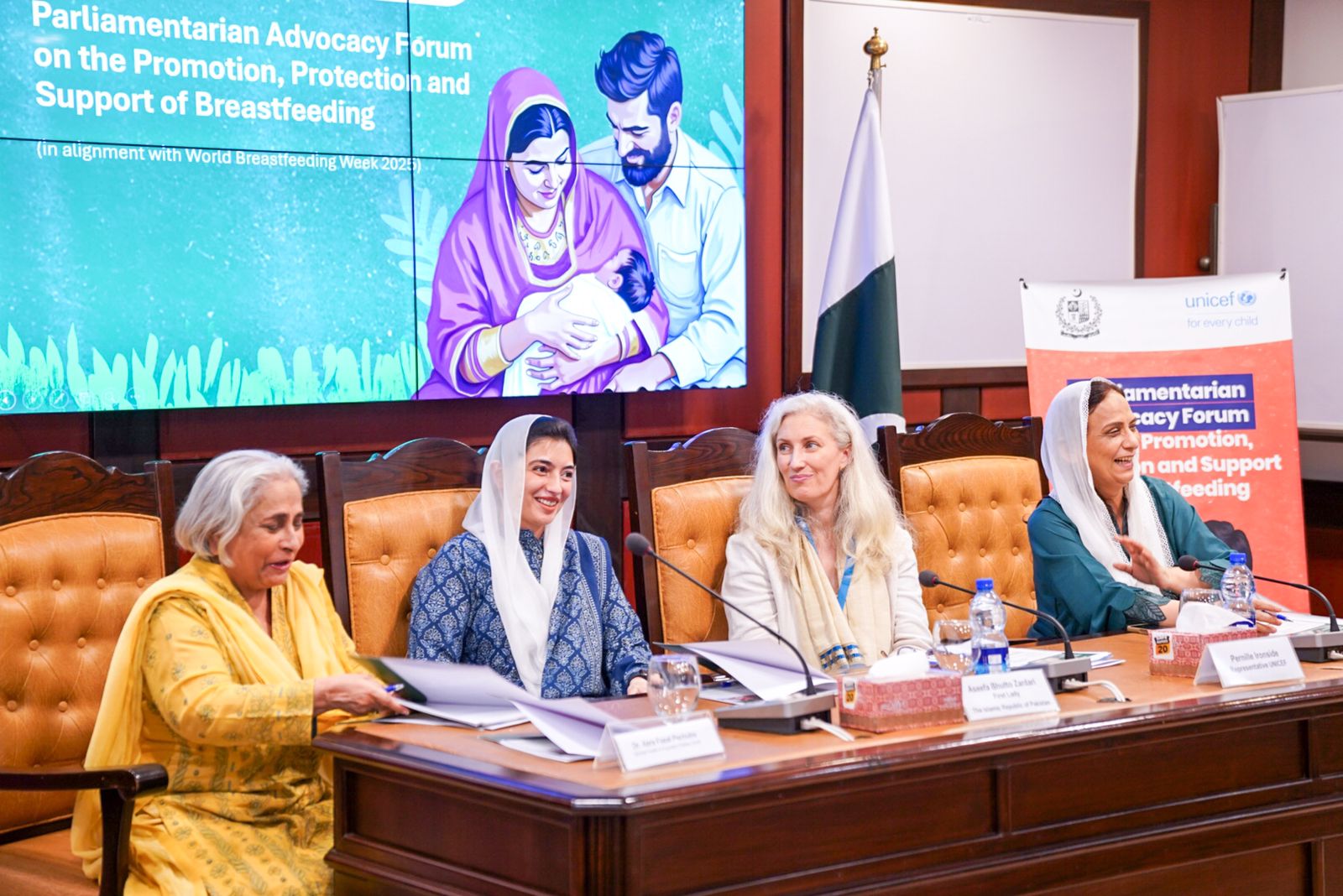
First Lady Aseefa Bhutto Zardari, Sindh Health Minister Dr Azra Fazal Pechuho, and parliamentarians from across the political spectrum on Monday signed a landmark joint declaration on gender, breastfeeding, and nutrition in Pakistan, pledging coordinated action to protect child health, empower mothers, and remove systemic barriers to optimal breastfeeding practices.
The declaration, endorsed during the Parliamentarian Advocacy Forum on the Prevention, Protection and Support of Breastfeeding – jointly organized by UNICEF and the Women Parliamentary Caucus at the Pakistan Institute for Parliamentary Services (PIPS) – calls for treating breastfeeding as a national investment in health and development, said a press release.
It urged strict enforcement of laws regulating the marketing of breastmilk substitutes, integrating breastfeeding promotion into healthcare systems, improving workplace protections for mothers, and engaging communities to shift harmful cultural norms.
Sindh Health Minister Dr Azra Fazal Pechuho, delivering the keynote address, urged parliamentarians from both houses not to allow formula milk to be removed from the jurisdiction of the Drug Regulatory Authority of Pakistan (DRAP), stressing that it is a medicine, not food, and must be regulated accordingly.
She highlighted the Sindh Protection and Promotion of Breastfeeding and Young Child Nutrition Act, 2023, saying her government faced enormous pressure from vested interests but did not bow down.
She linked the rise in non-communicable diseases, including heart attacks and strokes, to the absence of mother’s milk in early childhood nutrition.
UNICEF Representative in Pakistan Pernille Ironside called on Federal and provincial lawmakers to replicate Sindh’s breastfeeding law nationwide, invest in gender-responsive healthcare systems, and make breastfeeding a national priority.
UNICEF Nutrition Chief Anteneh Girma Minas described the event as an important milestone, noting the rare presence of the First Lady at such a policy-focused forum.
Presenting key evidence, Prof Jamal Raza, Executive Director of the Sindh Institute of Child Health and Neonatology underscored that Pakistan loses around US$2.8 billion annually due to low breastfeeding rates, with over US$888 million spent each year on breastmilk substitutes.
He stressed that raising exclusive breastfeeding to 70 percent could save up to 34,000 child lives annually, prevent as many as 2.8 million diarrhoea cases, and save up to US$55 million in healthcare costs.
Women Parliamentary Caucus Secretary Dr Shahida Rehmani stressed the importance of breastfeeding for reducing infant mortality and improving maternal health.
Pakistan Paediatric Association President Prof Masood Sadiq urged extending maternity leave to at least six months, banning advertisements of breastmilk substitutes on social media, and enacting a federal breastfeeding protection law modelled on Sindh’s. He also called for the promotion of kangaroo care in hospitals to strengthen mother–child bonding and improve neonatal outcomes.
UNICEF gender specialist Fahmida Khan urged parliamentarians to join hands in promoting breastfeeding as a life-saving intervention, noting that optimal breastfeeding could significantly reduce malnutrition and stunting rates in the country.
UNICEF specialists Saba Shuja and Dr. Mazhar Hussain also made a detailed presentation on Pakistan’s malnutrition crisis, highlighting the health and economic impacts of low breastfeeding rates and the harmful effects of breastmilk substitutes.
The joint declaration signed at the forum commits lawmakers to champion breastfeeding-friendly legislation, ensure enforcement of existing laws, integrate breastfeeding promotion into all levels of the health system, and secure sustainable financing for maternal and child nutrition.

